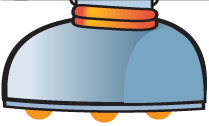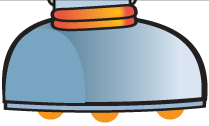A Guide to Caring for Your Baby’s Teeth
If you are a new parent, congratulations! You may have read lots of books on caring for your new baby and protecting his/her health. You probably see the pediatrician routinely for well-baby checkups and immunizations. But do you know how to care for your baby’s teeth?
Your baby’s teeth are a vital part of their health as a whole. After all, your baby needs those teeth in order to begin eating solid foods as well as to help them learn to form words and speak properly. The growth of teeth even impacts the development of the jaw.
Teething
Most babies get their first tooth anywhere between the ages of four months and seventh months. However, this is different for every child. Your baby might get his first tooth earlier than four months, or might not have any teeth by his first birthday. In most cases, the bottom front teeth are the first to come in.
In many cases, the first sign that a baby is teething is that the baby is drooling a lot or tries to put things in her mouth to chew on them. Teething is not always painful, but sometimes babies might experience some discomfort or seem fussy. You can relieve your child’s discomfort by giving her a cold washcloth or teething ring to chew on. You can also massage the baby’s gums with your (clean) finger. Your doctor might recommend that you give Tylenol, as well.
Contrary to popular belief, teething does not cause a fever. If your child has a fever, you should see your pediatrician. There may be an illness going on in addition to teething.
Bottles & Cups
If your child is teething, you can still continue to breastfeed as usual. If your child uses a bottle, be sure that you always hold her while she is drinking from the bottle, even if she can hold the bottle herself. Placing the baby in a crib and allowing her to fall asleep while drinking from a bottle is a bad habit that spells trouble for her dental health. The milk from the bottle can sit in the baby’s mouth while she is sleeping, and the sugars in the milk will cause bacteria to grow in her mouth and cavities to develop. Always put the bottle away before laying the baby down to sleep.
You should start introducing a sippy cup at around six months of age. By one year of age, babies should stop drinking from bottles completely. Never put juice or soda in a baby’s bottle; bottles should be used for milk, formula, or water only. Dentists and pediatricians recommend that soda never be given to children, and even juice should be given only sparingly. Giving your child milk and water to drink exclusively will help him to develop good, healthy habits for the future.
Brushing
As soon as your child gets her first tooth, you should start cleaning it. Until she reaches one year of age, you can clean her teeth and gums with a soft, wet washcloth. Around her first birthday, you can switch to using a small, soft toothbrush and fluoride-free toothpaste. Toothpaste that does not contain fluoride is used at this age because it is safe to swallow.
Every child should visit the dentist for the first time by his/her first birthday.
To make your child’s first dentist appointment, call Tustin Pediatric Dentistry. We have a staff of three board-certified pediatric dentists who will care for your child in a calm, nurturing environment. Give us a call to schedule an appointment today.










